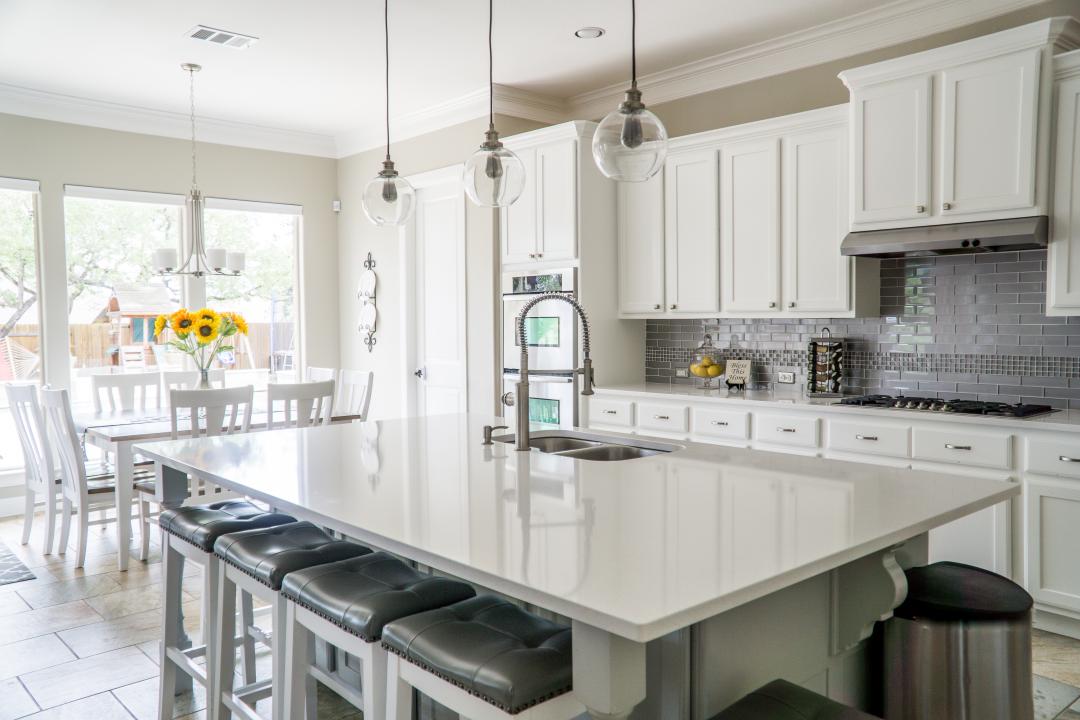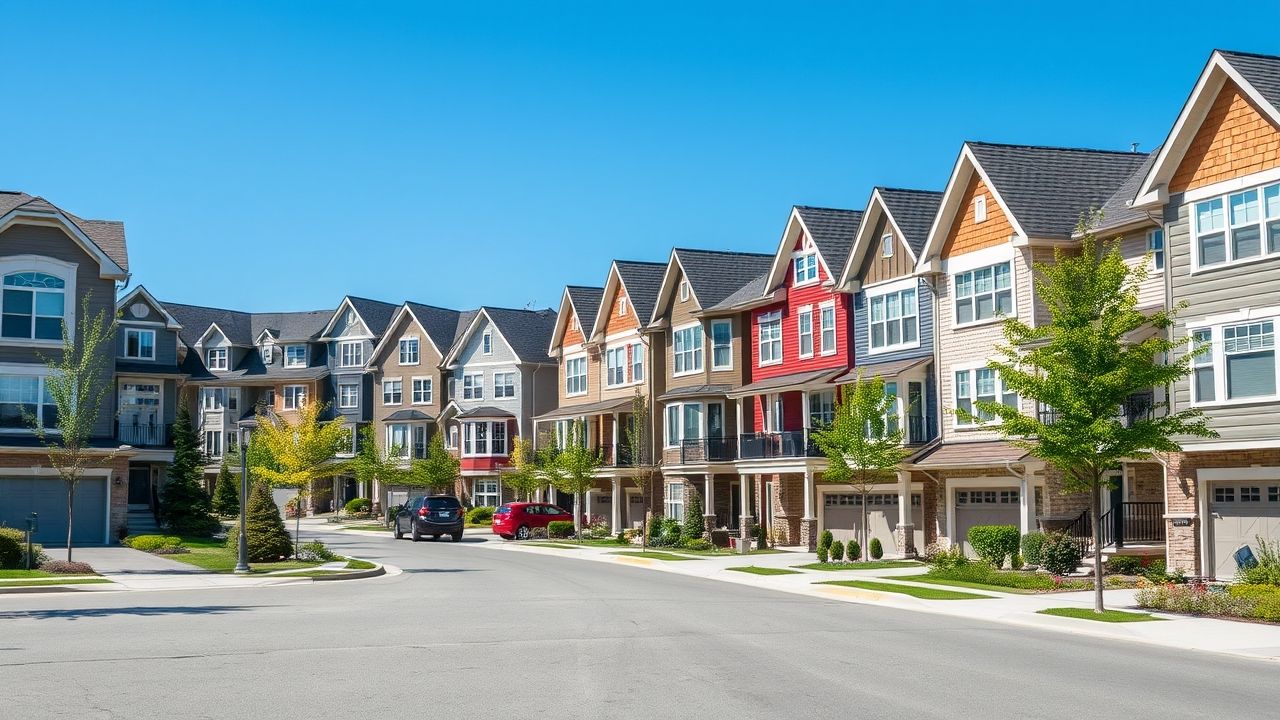Are you feeling lost trying to buy or sell a home in the crazy GTA market?
It feels like everyone has advice, but who do you trust? Prices go up. Prices go down. Bidding wars. Slow markets. It’s confusing. You just want a simple plan to buy the right home or sell yours for the best price without getting stressed out.
This is your guide. No fluff. No confusing talk. Just simple steps for buying and selling houses in places like Georgetown, Milton, Guelph, Acton, Oakville, and Burlington. We will cover everything you need to know.
Is Now the Right Time? Understanding the GTA Market
First, let’s look at the market. Is it a good time to buy? Or sell? The answer changes. It depends on many things. Interest rates. How many homes are for sale. How many people are buying.
What Happened Recently (2024 Lookback)
The market cooled down a bit from the super hot years before. Higher interest rates made it harder for some people to borrow money. This meant fewer buyers sometimes. Prices in some areas stopped climbing so fast. Some even dipped a little.
But the GTA is still a popular place to live. Lots of people want homes here. So, prices didn’t crash. Inventory (the number of homes for sale) went up and down.
What Experts Think Might Happen (2025 Outlook)
Predicting the future is hard. But experts watch trends. Some think interest rates might slowly come down. If they do, more buyers might jump back in. This could make the market busier again.
- Quote: “We’re seeing buyers be more cautious in early 2025, but underlying demand in the GTA remains strong. Sellers need realistic pricing, and buyers need solid pre-approvals.” – Sarah Chen, GTA Real Estate Broker (Fictional)
GTA West Snapshot (Georgetown, Milton, Guelph, Acton, Oakville, Burlington)
These areas are all a bit different. What happens in downtown Toronto isn’t always the same here.
- Milton & Georgetown: Still popular with families. Good schools attract people. Prices held up relatively well in 2024, but buyers had a bit more choice than before. Expect competition for well-priced family homes in 2025.
- Guelph: Has its own strong market. University and jobs keep demand steady. Saw balanced conditions in 2024. Look for steady activity in 2025, maybe picking up if rates ease.
- Acton: Often a more affordable option. Attracts buyers looking for value. Market trends here often follow the bigger neighbours.
- Oakville & Burlington: Higher price points generally. Close to Toronto and the lake. These areas saw some price adjustments in 2024 as borrowing costs rose. Luxury homes might take longer to sell. In 2025, well-priced homes in good locations will still sell.
Important: Market numbers change fast. Always check the latest reports from the Toronto Regional Real Estate Board (TRREB) or your local board. This info gives you a general idea, not exact current prices.
So, is it the right time? It depends on you. Your money situation. Your life plans. Don’t try to time the market perfectly. Focus on finding the right home for you or selling when it makes sense for your life.
Buying a Home in the GTA: Step-by-Step
Ready to buy? It’s a big step. Here’s how to do it right.
Getting Your Money Right: Financing & Pre-Approval
This is the first step. Always. Before you even look at houses online.
Why Pre-Approval Matters
A mortgage pre-approval tells you how much a lender might lend you. It shows sellers you are serious. It helps you know your budget. You won’t waste time looking at homes you can’t afford.
How to Get Pre-Approved
- Talk to a Mortgage Broker or Bank: They look at your income, debts, and credit score.
- Gather Documents: Pay stubs, bank statements, tax returns.
- Get Your Letter: The lender gives you a letter saying how much you might borrow. It’s not a final guarantee, but it’s a strong start.
Don’t Forget Closing Costs
Buying a home costs more than just the price tag. You need money for:
- Land Transfer Tax: Ontario has one. Toronto has an extra one if you buy there.
- Lawyer Fees: You need a lawyer to handle the paperwork.
- Home Inspection: Highly recommended. Costs a few hundred dollars.
- Appraisal Fee: Sometimes the lender requires this.
- Moving Costs: Truck rental, movers.
- Possible Adjustments: Paying back the seller for prepaid property taxes or utilities.
Budget thousands extra for these costs.
First-Time Home Buyer Programs Ontario
Are you a first-time buyer? Look into programs that can help.
- Land Transfer Tax Rebates: Ontario and Toronto offer rebates for first-time buyers. This can save you thousands.
- Home Buyers’ Plan (HBP): Lets you borrow from your RRSPs tax-free for a down payment. You have to pay it back over time.
- First Home Savings Account (FHSA): A newer account to save for your first home. Contributions are tax-deductible, and withdrawals (including investment growth) to buy a first home are tax-free.
Check the government websites (Canada Revenue Agency, Ontario Ministry of Finance) for the exact rules. They can change.
Finding Your GTA Dream Home: The Search
Now the fun part starts. But stay focused.
Work With a Real Estate Agent
A good local agent is worth it. They know the area (like Guelph or Oakville). They have access to listings. They guide you through the process. They help you negotiate.
- How to Choose: Ask friends for recommendations. Interview a few agents. Find someone you trust and who communicates well. Make sure they work in the specific town you like.
Where to Look
- Online: Websites like Realtor.ca show listings. Your agent will also send you options.
- Open Houses: A good way to see homes without pressure. Get a feel for neighbourhoods.
- Drive Around: Explore areas you like. Sometimes you spot ‘For Sale’ signs early.
Know Your Needs vs. Wants
Be clear about what you must have (needs) and what would be nice (wants).
- Needs: Number of bedrooms, location near work/schools, budget.
- Wants: Big backyard, finished basement, specific style.
This helps you narrow down choices. You likely won’t get everything on your want list. Especially in the competitive GTA.
Types of Homes in the GTA
The GTA has all kinds of homes.
- Detached: Standalone house with its own land.
- Semi-Detached: One wall shared with a neighbour.
- Townhouse: Several homes joined in a row. Can be freehold (you own the land) or condo (shared ownership of common areas).
- Condo Apartment: Unit in a larger building. You own your unit, share common spaces. Pay monthly condo fees.
Think about your lifestyle. Do you want a yard? Hate shoveling snow? Condo fees cover some maintenance. Freehold means you do it all.
Special Consideration: Heritage Homes
Some older homes have special protection. They are called heritage homes. Buying one is different.
What Are Heritage Homes?
These are houses the government says have special historical value. They want to protect them. The Ontario Heritage Act gives rules for this. Some homes are protected individually. Some whole neighbourhoods (Heritage Conservation Districts or HCDs) are protected.
Heritage homes Ontario regulations
There are rules. Lots of them. If a home is ‘designated’ heritage, you need permission from the local city council for big changes. This includes major repairs, additions, or tearing it down.
Restrictions on renovations in heritage areas
Living in an HCD (like parts of Oakville or Guelph might have) means rules too. Even new buildings must fit the old style. Getting approval for changes takes time. Expect weeks or months for the council to decide.
You usually need to show them plans. What the house looks like now. What you want it to look like. They check if your plan fits the heritage character.
- Quote: “Renovating a designated heritage home requires patience. The goal is preservation, so expect dialogue with the municipality about materials and design. It protects the neighbourhood’s character, which is often why buyers chose the area.” – David Miller, Heritage Restoration Specialist (Fictional)
Cost of maintaining heritage homes
Fixing up a heritage home often costs more. You might need special materials. Think specific wood for windows. Or matching old brick. Finding workers with the right skills costs more too. Custom work is expensive.
Get quotes before you buy. Bring a contractor familiar with old homes when you view the property. Understand the potential costs fully.
Finding qualified contractors for heritage work
Not every contractor can do this work well. You need someone experienced with old buildings and heritage rules. Ask your real estate agent for recommendations. Look for contractors who list heritage work as a specialty. Check their past projects.
Historical significance of properties
Why all the fuss? These homes tell a story. They show past building styles. They are part of the community’s history. Owning one connects you to that past.
Grants for heritage home restoration
There is some help. Ontario has programs. Some cities also have grants. Example: The Heritage Grant Program. It might cover part of the cost for fixing important heritage features. Usually up to 50% or a max amount (like $10,000). Rules apply. You must be designated. You can only get it every few years. Check your local city website and the Ontario Heritage Trust for details.
Benefits of owning a heritage property
It’s not just costs and rules. People love these homes. They have character new homes lack. Unique features. A sense of history. It’s something special to own. It’s a conversation starter.
Resale value of heritage homes
Does heritage status hurt the price? Usually not, according to experts. Many heritage areas (like parts of Toronto, but also potentially historic areas in Guelph or Oakville) have high property values. The rules protect the neighbourhood’s charm. That charm attracts buyers. When selling, the heritage status is often seen as a plus.
Preserving architectural history
By owning and caring for a heritage home, you help save history. You keep the architectural style alive for others to see. It’s a contribution to the community’s character.
Understanding heritage designations
There are two main types:
- Designated: Full protection under the Ontario Heritage Act (Part IV for single properties, Part V for districts). Needs council approval for alterations/demolition.
- Listed: Not fully protected yet, but on the city’s radar. The city is evaluating it. Owners must give 60 days notice before altering or demolishing. The city can decide to designate it during that time.
Before buying an older home, check with the city if it’s listed or designated. Your lawyer should also confirm this.
Making an Offer That Wins (Without Overpaying)
You found the house. Now, the offer.
Key Parts of an Offer
- Price: What you’re willing to pay.
- Deposit: Shows you’re serious. Held in trust. Part of your down payment if the deal closes.
- Conditions: Things that must happen for the deal to be final. Common ones:
- Financing Condition: You need to get final mortgage approval.
- Inspection Condition: You need a satisfactory home inspection.
- Sale of Buyer’s Property Condition: You need to sell your current home first (less common in hot markets).
- Closing Date: When you officially take ownership.
How Much to Offer?
Your agent helps here. They check ‘comparables’ – prices of similar nearby homes that recently sold. Market conditions matter.
- Busy Market (Seller’s Market): Lots of buyers, few homes. You might need to offer the asking price or more. Maybe offer with fewer conditions (risky!). Bidding wars happen.
- Slow Market (Buyer’s Market): More homes, fewer buyers. You might offer below asking. Include conditions for protection.
- Balanced Market: Somewhere in between.
Negotiating
The seller can accept, reject, or counter your offer. A counter-offer changes terms (like price or closing date). You can then accept, reject, or counter back. Your agent guides you.
Closing the Deal: Inspections, Lawyers, Paperwork
Your offer is accepted! Almost there.
Home Inspection
If you have an inspection condition, hire a qualified inspector. They check the house top to bottom. Structure, roof, plumbing, electrical, heating/cooling. They give you a detailed report. It tells you about any needed repairs. Big problems might let you back out of the deal or renegotiate the price.
Lawyer’s Role
You need a real estate lawyer. They:
- Check the title (legal ownership) of the property.
- Make sure property taxes are paid up.
- Arrange title insurance.
- Handle the transfer of funds.
- Register the deed in your name.
Final Steps
- Get final mortgage approval.
- Arrange home insurance (needed before closing).
- Do a final walk-through before closing day. Make sure the home is in the agreed condition.
- Sign papers with your lawyer.
- Pay the remaining down payment and closing costs.
Closing Day
Your lawyer handles the money transfer. The seller gets paid. You get the keys! The house is yours.
Selling Your Home in the GTA: Step-by-Step
Selling your home? You want the best price, fast. Here’s how.
Preparing Your Home to Wow Buyers
First impressions matter. A lot.
Declutter: Get rid of stuff you don’t need. Pack personal items away. Buyers need to imagine themselves living there.
Deep Clean: Clean everything. Windows, floors, bathrooms, kitchen. Make it sparkle.
Repairs: Fix small things. Leaky faucets, broken handles, chipped paint. Big problems? Decide if fixing them adds value or if you should sell ‘as is’ (disclosed).
Curb Appeal: Make the outside look good. Cut grass, trim bushes, maybe plant flowers. Paint the front door.
Staging (Optional but Recommended): Arranging furniture to show off the space. Can hire a pro or do it yourself. Focus on flow and making rooms look bright and spacious.
Pricing it Right: The Biggest Mistake Sellers Make
Pricing too high is a common error. Buyers skip overpriced homes. The house sits on the market. You might end up selling for less than if you priced it right initially.
How to Set the Price
- Agent‘s Help: Your real estate agent does a Comparative Market Analysis (CMA). They compare your home to similar ones recently sold nearby.
- Market Conditions: Is it a hot, cold, or balanced market in your specific area (e.g., Burlington vs. Acton)?
- Your Home’s Condition: Be honest about needed repairs or updates.
- Your Timeline: Need to sell fast? Might price more competitively.
Don’t just pick the agent who suggests the highest price. Pick the one who uses data to back up their recommendation.
Marketing Your Home Effectively
Getting eyes on your listing is key. Especially when thinking about selling your house fast Burlington or any other competitive area.
Professional Photos/Video: Crucial. Most buyers look online first. Bad photos = fewer showings. Good photos grab attention. Consider video tours or 3D walkthroughs.
Listing Description: Highlight key features. Use appealing language but be accurate.
Online Listing: Your agent puts it on the MLS (Multiple Listing Service). This feeds Realtor.ca and other sites.
‘For Sale’ Sign: Still works!
Showings & Open Houses: Be flexible. Keep the house clean and ready for buyers to visit. Leave during showings so buyers feel comfortable.
Negotiating Offers Like a Pro
You got an offer! Or maybe several.
Reviewing Offers
Look at more than just price.
- Conditions: Are there financing or inspection conditions? Fewer conditions are better for you, but buyers need protection.
- Deposit Amount: A larger deposit can show seriousness.
- Closing Date: Does it work for your timeline?
- Buyer’s Situation: Are they pre-approved? Do they need to sell their home first?
Responding to Offers
You can:
- Accept: Sign the offer as is.
- Reject: Say no.
- Counter: Change something (price, closing date) and send it back.
- Handle Multiple Offers: If you get several offers, your agent helps you compare them. You might ask buyers for their ‘best and final’ offer.
Your agent advises you on strategy. Stay calm and focus on your goals.
Closing Day: What Sellers Need to Do
The deal is firm. Now, prepare for closing.
Lawyer’s Role (Seller)
Your lawyer:
- Prepares the deed transfer documents.
- Confirms you’ve met all conditions.
- Receives funds from the buyer’s lawyer.
- Pays off your remaining mortgage.
- Pays real estate commissions and legal fees.
- Gives you the remaining money.
Your Tasks
- Move Out: Have everything packed and moved out before the closing date/time.
- Clean: Leave the house reasonably clean (broom swept).
- Utilities: Arrange final meter readings and cancel/transfer services.
- Provide Keys: Give keys to your lawyer.
Once the lawyers confirm funds have transferred, the deal is closed. The buyer gets the keys.

Finding the Right Help: Real Estate Agents & Lawyers
Buying or selling is complex. Good professionals make it smoother.
Choosing a Real Estate Agent
We mentioned this before, but it’s important.
- Local Expert: Find someone who knows the specific town well.
finding a real estate agent in Guelphneeds someone active in Guelph, not just Toronto. - Experience: How long have they worked? What types of properties?
- Communication: Do they respond quickly? Explain things clearly?
- References: Ask for past client names you can talk to.
- Trust: Go with your gut. You need to trust their advice.
Don’t be afraid to interview 2-3 agents before choosing.
Choosing a Real Estate Lawyer
Your agent might suggest lawyers, or ask friends/family.
- Specialization: Choose a lawyer who focuses on real estate.
- Fees: Ask how they charge (flat fee or hourly) and get an estimate.
- Location: Doesn’t have to be super close, but convenient for signing documents.
Moving Day: Tips for a Smooth Transition
Moving is stressful. Plan ahead.
- Book Movers or Truck Early: Especially during busy seasons (summer, end of month).
- Declutter Before Packing: Don’t move stuff you don’t need.
- Pack Strategically: Label boxes clearly (room, contents). Pack an ‘essentials’ box for the first night.
- Change Address: Notify post office, banks, subscriptions, government (driver’s license, health card).
- Transfer Utilities: Arrange for services to start at the new place and stop at the old one.
- Plan for Kids/Pets: Arrange care for moving day if needed.
- Keep Important Papers Handy: Closing documents, contacts.
FAQ: Your GTA Real Estate Questions Answered
Here are answers to common questions.
Q: How much down payment do I need in Ontario?
- Minimum is 5% for homes under $500,000.
- For homes $500,001 to $1 million, it’s 5% on the first $500k + 10% on the portion above $500k.
- For homes over $1 million, you need 20% down.
- If your down payment is less than 20%, you need mortgage default insurance (like CMHC insurance). This adds cost.
Q: What’s the difference between a real estate agent and a broker?
A broker has extra training and licensing. They can manage their own brokerage and supervise other agents. An agent (or salesperson) works under a broker. For buying/selling, you can work effectively with either, as long as they are experienced and you trust them.
Q: Should I buy first or sell first?
It depends on the market and your finances.
- Selling First: Safer financially. You know how much money you have for the next purchase. But you might need temporary housing.
- Buying First: You secure your new home. But you might carry two mortgages if your old home doesn’t sell quickly (stressful!). Often requires ‘bridge financing’ (a short-term loan).
Discuss the risks and benefits with your agent and mortgage advisor.
Q: How long does the closing process take?
Usually 30-90 days from the offer acceptance date. It depends on what you and the seller agree on in the offer. 60 days is common.
Q: What is Land Transfer Tax?
It’s a tax paid by the buyer when purchasing property. Ontario has a provincial tax. Toronto has an additional municipal tax. Rates are tiered based on the property price. First-time buyers can get rebates. Use an online Land Transfer Tax calculator for estimates.
Q: What happens if I back out of a deal after my offer is accepted?
If you back out for a reason not covered by a condition (like financing or inspection), you can lose your deposit. The seller could also potentially sue you for damages if they suffer losses (e.g., sell for less later). It’s serious. Only make an offer if you intend to proceed, and use conditions wisely.
Q: Are bidding wars common in Georgetown or Milton now?
It depends on the specific property, price point, and current market heat. In early 2024/2025, well-priced, desirable homes could still see multiple offers, but maybe not the huge bidding wars of peak years. Less desirable homes might not get multiple offers. Ask your agent about the current local situation.
Buying or selling a home in the GTA is a big deal. This guide gives you the basic steps. Get good advice from local professionals. Ask questions. Understand the process.
You can navigate this market successfully. Take it one step at a time. Focus on your goals. Soon you could be settling into your new home or moving on to your next chapter.
Ready to take the next step in your GTA real estate journey? Share this guide, leave a comment with your questions, or reach out for personalized advice for your situation in Georgetown, Milton, Guelph, Acton, Oakville, or Burlington.





















